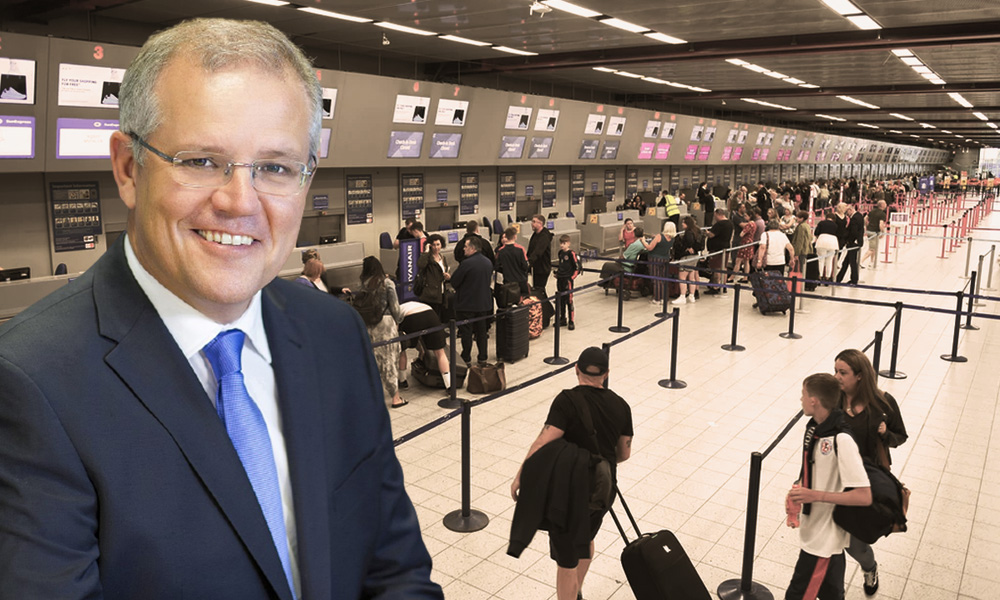Australia's India Travel Ban Termed 'Racist'
Writer: Hannah Jacob
Hannah Jacob P is an observant and passionate young woman who loves to find unheard stories and help to make anyone's day better through those stories. Besides searching for social impact stories, she loves to read about human behavior.
Others/World, 22 May 2021 5:40 AM GMT | Updated 22 May 2021 7:39 AM GMT
Editor : Madhusree Goswami |
A mountain girl trying to make it big in the city. She loves to travel and explore and hence keen on doing on-ground stories. Giving the crux of the matter through her editing skills is her way to pay back the journalism its due credit.
Creatives : Hannah Jacob
Hannah Jacob P is an observant and passionate young woman who loves to find unheard stories and help to make anyone's day better through those stories. Besides searching for social impact stories, she loves to read about human behavior.
Though the ban issued on April 27 has ended, it has been called selective as it did not apply to countries like the UK, USA where the infection rates were very high.
When the coronavirus pandemic hit the world last year, Australia was one of the first countries to issue a travel ban from other countries and enforce strict border controls. A year later, the ban is still in place and only passengers from New Zealand can visit the country. On April 27, Australian Prime Minister Scott Morrison issued a travel ban on all visitors from India with threats of jail term, reported the BBC.
However, the decision has not gone down well with everyone. It has been termed 'racist' as over 9,000 Indian-origin Australians remain stranded in India. However, the PM has dismissed all accusations of racism. "The same accusations were made against the government over a year ago when we closed the borders to mainland China," he told Sydney radio station 2GB.
Although the restrictions have been relaxed since May 15, with a repatriation flight flying back around 70 Australians from India, many are still stuck in India.
Selective Ban
Initially, the 'travel cap' in Australia, which began in 2020, allowed 'vulnerable' citizens, celebrities, sportsmen and other workers to return to the country. This meant that Australian nationals are dependent on commercial flights which allow only 40 passengers per flight. Due to the high demand, the prices of the flights have also gone up, aggravating Australians stranded abroad.
The new ban on passengers from India has also been 'inconsistent' as the same rule was not extended to other countries at the peak of infection in their country.
"We didn't see differential treatment being extended to... the United States, the UK, and any European country even though the rates of infection were very high and the danger of arrivals from those countries was very high," said Australia's former Race Discrimination Commissioner Tim Soutphommasane.
Australian-Indians Stranded in India
Last week, Govind Kant, an Australian businessman, passed away due to COVID. Kant had come to Delhi following his mother's death but got stuck due to the ban. The Australian-Indian community which makes up 2.6% of the population filed a plea to remove the travel ban.
In 2009-10, a series of attacks took place on Indian students in Melbourne. They were described as racially motivated.
Also Read: How Did New Zealand Manage To Become COVID-19 Free? All You Need To Know
 All section
All section















